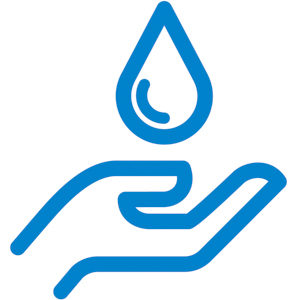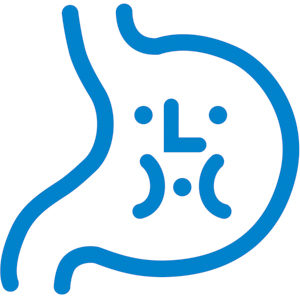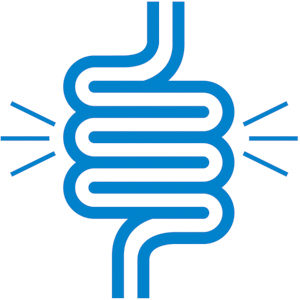Esophageal and Gastric Cancer Treatment Side Effects
Managing side effects of radiation treatment for esophageal and gastric cancers
Almost any cancer treatment can have side effects. Some might last only a few days or weeks, but others might last a long time. Some might not even show up until years after you have finished treatment. Here are some common side effects:
-

Skin Care
It is okay to bathe or shower daily with a mild soap. Wash the treatment area gently. Do not scrub the skin. If you have ink marks on your skin, please do not wash them off. Gently pat the skin dry.
During the course of your radiation therapy treatments, we ask that you put nothing on the skin in the treatment area except for the products recommended by the physician or nurse. Use moisturizers for dryness and over-the-counter hydrocortisone cream for itchiness. Apply products twice daily or as needed. We do not want the skin “greasy” when you come in for treatment.
Avoid the use of hot or cold in the treatment area. This includes the use of heating pads, hot packs, hot water bottles, ice packs, and ice bags. It is okay to use an electric blanket. Avoid the use of tape or Band-Aids in the treatment area.
-

Sun Exposure
During treatment, avoid exposing the skin in the treatment area to direct sunlight or tanning beds. If you plan on being in the sun for an extended period, cover the skin with clothing or broad-spectrum sunscreen with an SPF of 30 or higher. The treatment area will always be more sensitive to the sun and tanning beds.
-

Nausea/Vomiting/Heartburn:
You may feel slightly nauseous or have heartburn during your course of therapy. Some medications help control the nausea and prevent heartburn. You may need to take these medications before each treatment and continue to take them on a regularly scheduled basis throughout your treatments. The team will discuss anti-nausea and heartburn medications with you.
-

Fatigue
Loss of energy is a common side effect of radiation therapy. Endurance, stamina, concentration, and motivation may all decrease as a result of fatigue. Conserve your energy and rest when you need to. Eat a well-balanced diet and stay well-hydrated by drinking plenty of water. Exercise such as walking or yoga can improve your energy. Respect your body’s limitations – if you hurt while exercising, stop.
-

Bowel Irritation:
Abdominal cramping, frequent bowel movements, loose stools, gas or diarrhea may occur 2 – 4 weeks after treatments have begun. If you experience the above symptoms, we recommend a low-fiber diet: avoiding fresh fruits and vegetables, whole grains (bran), nuts, and seeds. Medication may also be used to relieve these symptoms. Please discuss these symptoms with your MRO care team.
-

Nutrition
During your course of therapy, it is very important to maintain your weight. We suggest a diet high in protein, calories, and healthy fats to aid the body in recovery and restore strength. Your nurse will be checking your weight frequently. Even if you are overweight, we recommend maintaining your weight and preventing weight loss during treatment. We can suggest food supplements if weight loss occurs. It is not unusual to notice a decrease in appetite during radiation therapy. You may need to make a conscious effort to maintain adequate calorie intake. Frequent, small meals or snacks (every 2-3 hours) may be better tolerated than three large meals a day. Meeting with a dietician is helpful. If you need a referral, let your nurse know.
-

Duration
Side effects may worsen the final week of treatment and the week after radiation treatments are completed. Most of these side effects gradually subside within 2-8 weeks after treatment. Please call our office if you have any questions at any time during or after your radiation treatments.
For questions to ask your provider, see our FAQ page.